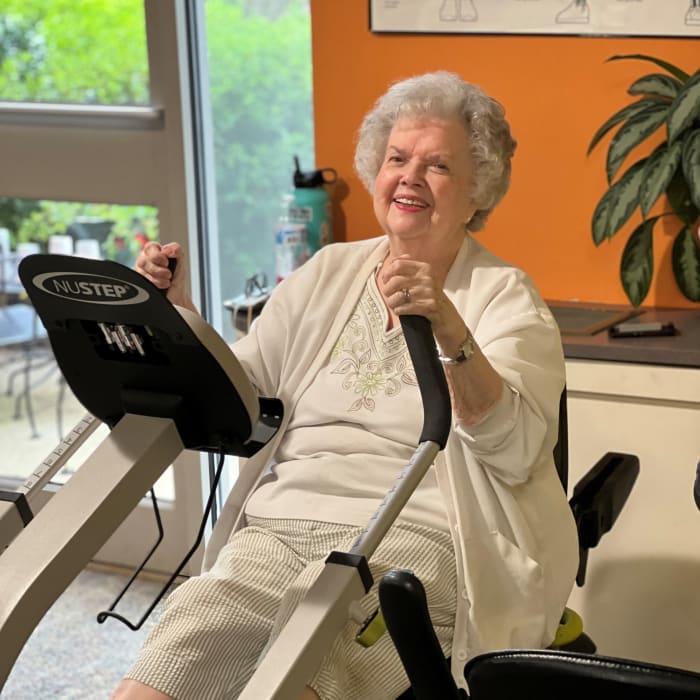Aging gracefully: Know what to expect
While we can’t stop the aging process, understanding what we might face along the way can help ease our transitions. Just how should you expect to feel as you age? The answer is different for everyone.
Your family health history, lifestyle and self-image contribute to your overall health. Still, as you age, the body begins to change gradually. You may need to turn up the volume on the TV to hear better or increase the font size on your digital devices. You may notice changes to your body, such as accumulating more fat and losing lean muscle, or thinning or graying hair.
Mind over matter
Getting older doesn’t mean you have to accept feeling older. How you feel emotionally is essential to helping you age gracefully. Having a positive attitude, staying engaged with friends and loved ones and maintaining a healthy lifestyle can do wonders for your mental growth and spiritual happiness, helping you truly enjoy your retirement years.
To stay youthful, strive for constant self-improvement of your body, mind and spirit. Your chronological age shouldn’t determine how young and good you really feel. The following lists offer some guidelines about what you should — and shouldn’t — accept as a part of natural aging.
Normal
• Occasional recent memory loss that doesn't affect quality of life.
• Gradual loss of stamina and energy level, slightly lower libido.
• Gradual, slight muscle loss and fat gain.
• Slightly elevated blood pressure and cholesterol levels.
• Minor joint or muscle aches and stiffness, especially in the morning or after inactivity.
• Some trouble reading or seeing distances; a need for new glasses.
• Slight difficulty hearing high-pitched sounds.
• Gradual thinning or graying of hair.
• Some treatable tooth decay and gum disease.
• Concern about how your body is changing.
• Fragmented sleep.
Not normal
• Confusion, disorientation, blackouts, inability to perform everyday tasks.
• Sudden and severe fatigue that affects the ability to function, loss of sex drive, depression.
• No longer enjoying things you liked in the past, feeling like you’re a burden to others or that you have nothing to look forward to, loss of appetite, unexplained low energy.
• Unexplained, sudden weight loss or gain.
• Excessively high or low blood pressure or cholesterol that doesn’t respond well to treatment.
• Sharp or chronic pain, joint or muscle swelling that gets worse with time, bone fractures.
• Blurred vision, eye pain, dizziness, blind spots, excessive dryness of the eyes.
• Severe hearing loss, itching or ringing in the ear, pressure, excessive earwax.
• Sudden hair loss or graying of hair, sudden facial hair growth in women.
• Bleeding or receding gums, severe tooth pain, dry mouth, sores or lumps in the mouth, difficulty swallowing.
• Insomnia, sleep disturbances every night.
Stay active and healthy
Talk to your doctor if you’re facing new challenges with your health or safety at home. For more resources and advice on maintaining control and independence as you age, contact Presbyterian Communities of South Carolina at www.prescommunities.org






